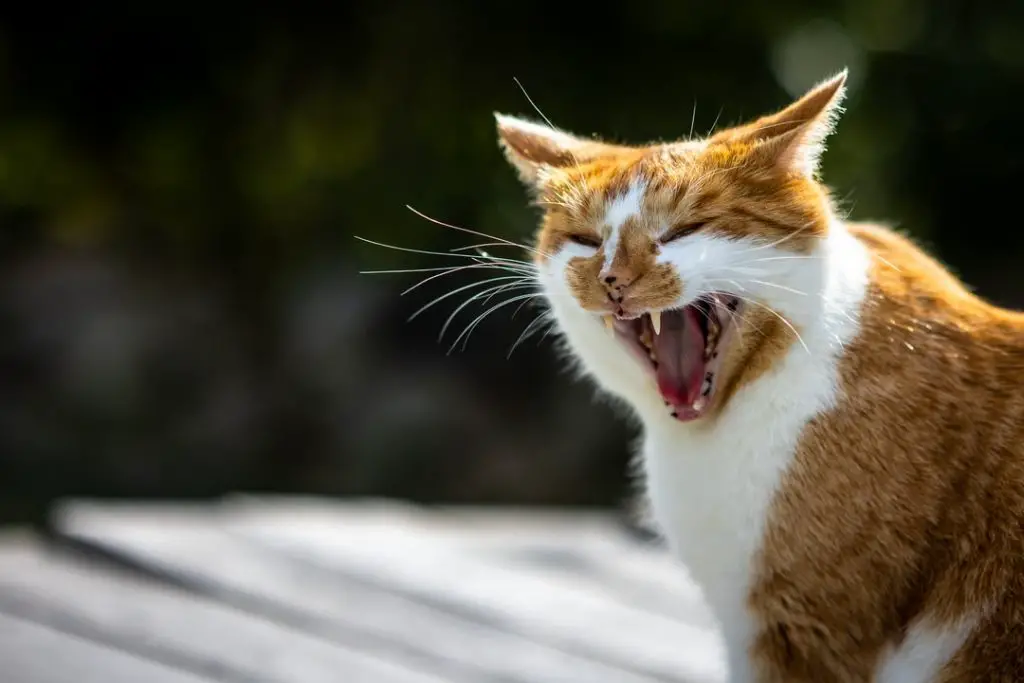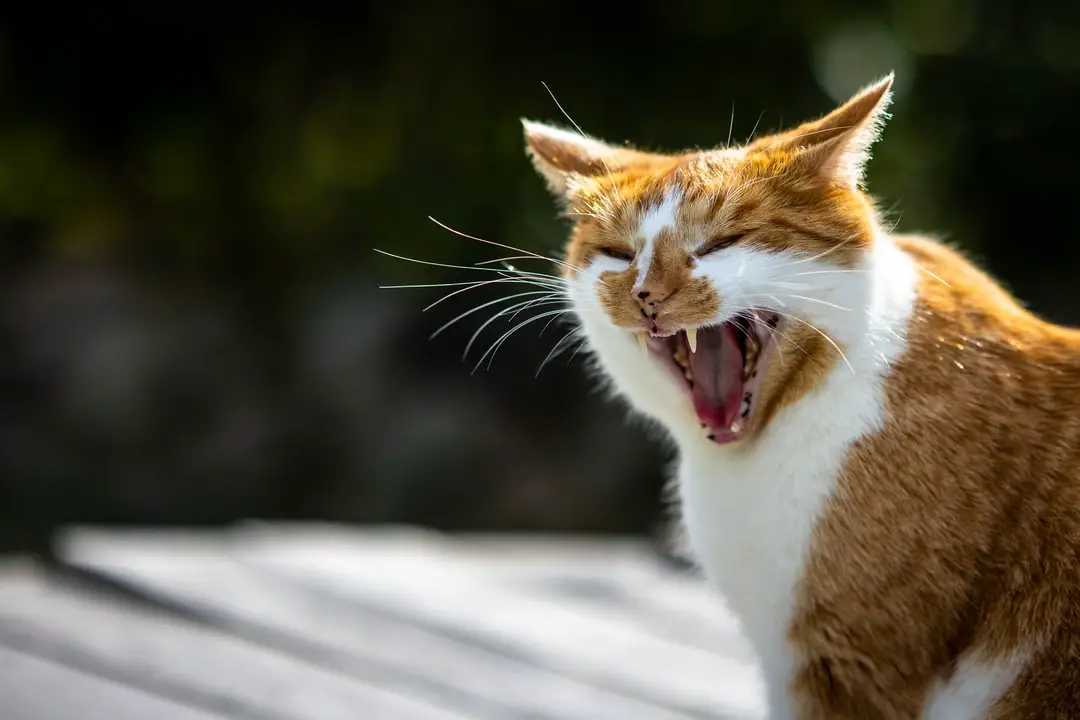Who doesn’t love to pop those sweet cat-face emojis into every email, text, and tweet? Wouldn’t life be a lot easier if our pet cats could emote with such clarity? Then it will be super easy to find out why do cats hiss?
Since our favorite felines don’t grin or weep crocodile tears, how can pet owners understand when a cat is experiencing emotions like fear, stress, or discomfort?
Though subtle, cats are masters of emotional expression! Cats employ every muscle and instinct to convey how they feel at any given time. Except for birds, cats have more distinct vocalizations than any other domestic animal!
From a mighty yowl to a twitch of the ears, cats are expressing themselves constantly if you know how to listen!
Have you ever wondered “Why do cats hiss and growl?” We’ve looked into hissing, as well as other forms of kitty communication, to better understand cat emotions and how they’re expressed. Continue reading to learn how to use your cat’s cues to become a pet whisperer!

Contents
1. Why Do Cats Hiss at You?
If you’re trying to figure out what your cat’s hiss means, you may already be too close! Hissing is an instinctual response to proximity when a cat feels scared or otherwise threatened. Their instinct is to instill fear in their “prey,” but they still default to hissing in other situations involving pain or fear.
It makes sense that hissing looks and sounds scary because it’s meant to scare you and keep you away! In that case, why do cats hiss at kittens? Usually, it’s because those busy little kittens are in their space and they want to establish dominance over those annoying babies!
Likewise, if you’re wondering “Why do cats hiss at each other,” it’s for much of the same reason. Cats are naturally territorial animals and they don’t like sharing their space with strangers, including strange cats. When a new cat is introduced, they want to make the hierarchy clear.
You might notice an influx in hissing behavior if you “change the territory,” even by simply moving furniture or their litter box. That is because these territorial creatures also tend to get stressed when faced with too much change. The hissing will usually calm down once they become more familiar with the space or any new cats introduced.
Finally, cats tend to default to this instinctual hissing behavior when they’re in pain. If you accidentally touch an injured or painful body part, they will hiss to encourage you to stop. That hurts!
2. Why Do Cats Growl?
Even before you hear a hiss, you’re likely to hear a growl! This threatening vocalization is a cat’s first attempt to get humans, cats, or other animals to back off. Hissing is the best tool in their emotional toolbox, so a growl is like an early warning sign that a hiss is on its way!
With that said, cats tend to growl for the same reasons why they might hiss. Think of the growl like a cat’s version of a verbal warning before they punch your lights out! In essence, it means they’re uncomfortable, you’re too close, or they’re scared or stressed for some other reason.
Needless to say, if you back off when you hear the growl, you’re less likely to end up hearing the hiss – and a lot less likely to take angry claws to the face!
3. Why Do Cats Yowl?
A yowl sounds like a long, sustained, high-pitched meow. Sometimes, a yowl is a cat’s distress signal. If the growl and the hiss didn’t work, an agonized yowl is a sign that your cat is in high-stress mode and doesn’t know how to escape its situation.
In other words, by the time you hear a yowl, your cat is actively in trouble and wants to alert you that things are not right in their world. Maybe a predator has them cornered, or they are in pain after an attack. Remember that in the wild, a wounded cat would be in big trouble, so this is a last-ditch effort to keep hungry predators away in a moment of extreme weakness.
A cat’s first instinct in this situation will often be to hide. You will usually hear a yowl in situations in which hiding is impossible.
Occasionally, you’ll hear that yowl when your cat has become trapped somewhere and doesn’t want to be, which simply means “Get me out of here!”
4. Why Do Cats Chirp?
A chirp is sometimes called a trill or a chirrup.
If you’ve never heard this sound before, it may be because you have a male cat. This sound is far more common in female cats because it’s a noise they instinctually use to communicate with kittens. When speaking to kittens, this sound means, “Come on, guys! Follow me!”
If you hear your cat chirp at you, it probably means they’re happy or excited! Think of a chirp as a purr with some extra energy behind it. They’re so pleased or happy that they want to make sure everyone can hear it!
5. Why Do Cats Chatter?
Have you ever heard your cat make a strange, soft fractured sound with an open mouth? This is a sound that you’re likely to hear if your kitty has their sights on a bird. It’s used almost exclusively to “communicate” with prey animals.
This is a primal noise that your cat will make when they shift into predator mode. All of the pleasure chemicals are rushing into their little brains and they become so excited that they can’t keep quiet! Think of it as the sound of “predatory excitement.”
6. Why Do Cats Caterwaul?
If you’re hearing an extremely loud moaning sound from your cat, often in the evening, there’s a very good chance that your furry friend is in heat. More often than not, you will hear this heated caterwauling from female cats. It’s their way of communicating that they’re eager for a mate, and attracts tom cats right to them!
In other words, this specific sound is your cat’s version of logging onto Tinder on a lonely Saturday night. If you get your cat spayed, you’re unlikely to hear this sound again.
From Fear to Bliss: Look Who’s Talking Meow!
While not all cats are vocal, even the most demure feline is communicating constantly. Whether they’re showing fear through hissing, or emitting contented purrs, they’re telling you how they feel. Once you learn to look out for the clear signs of emotional expression, you will be able to read your cat like a book!
If you’re looking to learn more about how cats communicate, the AnimalFate blog has plenty of posts that can help. Check out this post about why cats arch their backs to learn more about these mysterious mouse-hunting machines!



